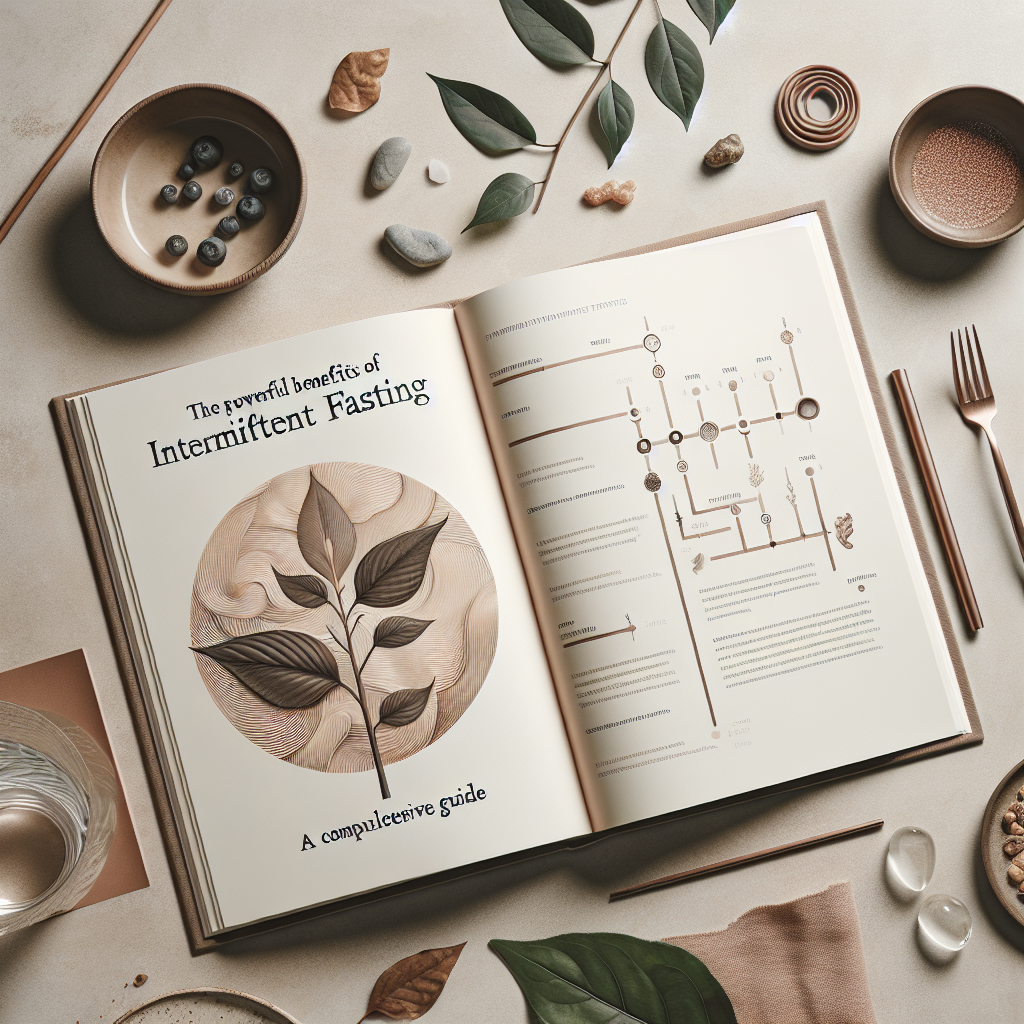### The Powerful Benefits of Intermittent Fasting: A Comprehensive Guide
Science-backed insights are increasingly pointing to the advantages of intermittent fasting, not just for weight loss, but as a pathway to improved overall health. This blog post delves deeper into this trending health practice, helping readers make informed decisions based on scientifically validated health insights.
## What is Intermittent Fasting?
Intermittent fasting (IF) is an eating pattern that alternates between periods of eating and fasting. Rather than being a diet, it is more appropriately described as a lifestyle choice that focuses on when you eat, not what you eat. It takes several forms, including the 16/8 method (16 hours of fasting followed by an 8-hour feeding window), the 5:2 method (consuming only 500-600 calories on two nonconsecutive days of the week), and the eat-stop-eat method (24-hour fasts one or two times a week).
## How Does Interment Fasting Work?
During fasting, your body undergoes metabolic shifting. Insulin levels drop drastically, allowing your body to access stored body fat and use it as a primary source of energy. This process is known as ketosis. Simultaneously, Human Growth Hormone (HGH) levels increase, which benefits muscle gain and fat loss. Your cells also initiate processes such as autophagy, a cellular waste removal process that’s linked to longevity and disease prevention.
## Proven Benefits of Intermittent Fasting
1. **Weight Loss & Belly Fat Reduction:** Since Intermittent fasting helps you consume fewer calories, while boosting metabolism, it can support weight loss and reduction of harmful belly fat.
2. **Elevated Mental Clarity:** Many IF practitioners report heightened mental clarity and improved concentration during their periods of fasting.
3. **Reduced Inflammation & Oxidative Stress:** Studies show that IF can enhance the body’s resistance to oxidative stress and fight inflammation, both key drivers of aging and chronic diseases.
4. **Improved Heart Health:** IF may reduce various risk factors for heart disease such as blood pressure, cholesterol levels, fasting glucose, and inflammatory markers.
5. **Promotes Cellular Health & Longevity:** IF enhances autophagy, thus promoting cellular health. Some studies even suggest it may increase lifespan.
6. **Potential Cancer and Alzheimer’s Prevention:** Preliminary research indicates that IF could delay the onset of Alzheimer’s disease or reduce the risk of cancer. However, more human studies are needed.
## Tips to Start Intermittent Fasting
– **Start Small:** Begin by extending your usual overnight fast. For instance, if you’re used to eating breakfast at 7 a.m., try pushing it to 8 a.m or 9 a.m.
– **Stay Hydrated:** Drink plenty of water during the fasting period to prevent dehydration. Black coffee and tea are also permissible.
– **Time Your Meals:** Timing your meals to coincide with your circadian rhythm, i.e., eating during daylight and fasting at night, can enhance the benefits of IF.
– **Listen to Your Body:** It’s normal to feel hungry during the first few fasting periods. However, if you feel weak or unwell, consider adjusting your fasting window or seek medical advice.
Intermittent fasting holds potential benefits for physical, mental, and even emotional health. However, it’s essential to note that IF is not suitable for everyone, especially those with certain medical conditions or pregnant women. Before commencing any dietary modification, always seek advice from a healthcare provider to ensure it aligns with your unique physiological needs and health profiles.
Scientific studies on IF are still ongoing, but the initial health implications are promising and seem to validate the wellness trends that are emerging around this practice. Health is an ongoing journey, and the key to achieving and maintaining it lies in personalized, sustainable lifestyle choices backed by verifiable science.
**Sources:**
– Longo, Valter D., and Mark P. Mattson. “Fasting: molecular mechanisms and clinical applications.” _Cell metabolism_ 19.2 (2014): 181-192.
– Mattson, Mark P., Valter D. Longo, and Michelle Harvie. “Impact of intermittent fasting on health and disease processes.” _Ageing research reviews_ 39 (2017): 46-58.
– Anton, Stephen D., et al. “Flipping the metabolic switch: understanding and applying the health benefits of fasting.” _Obesity_ 26.2 (2018): 254-268.


